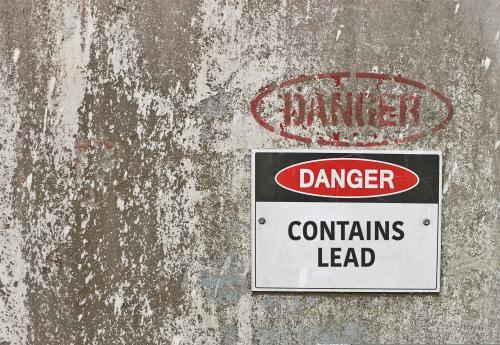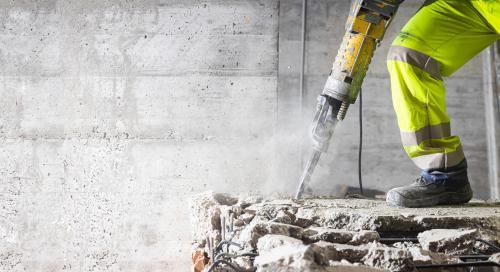Throughout the 18th and 19th centuries, arsenic was widely used in various interiror wallpapers and paints, prized for the vivid green pigment it produced when combined with copper. Known commercially as Scheele’s Green and Paris Green, these arsenic-based dyes were used well into the Victorian period, most often in domestic bedrooms and parlours.
Although their dangers were eventually recognised, many properties constructed before the 20th century may still contain old decorative materials contaminated with arsenic compounds. When disturbed, these materials can release toxic dust or gases that pose a serious health hazard to occupants and contractors.
At Envirochem, we test for the presence of arsenic in wallpaper, paints, and surrounding materials. Our team combines laboratory analysis with site-specific advice to help you identify risks early, avoid accidental exposure, and plan safe remediation works.
What We Test For
We provide targeted sampling and laboratory testing for:
- Wallpaper and paint samples suspected of containing arsenic-based pigments (e.g. Scheele’s Green and Paris Green)
- Wallpaper paste or glue with potential arsenic content
- Dust or debris in properties where arsenic wallpaper may have deteriorated
- Arsenic residues in underlying wall surfaces or insulation
Our Process
We begin with a consultation to understand the age and condition of the building, the scope of any planned works, and the potential for disturbance. Where needed, we attend sites to collect samples of wallpaper or paint for analysis.
Samples are then analysed in our UKAS-accredited testing laboratory (No. 1227) using validated methods capable of detecting trace levels of arsenic. Where risks are identified, we provide clear guidance on control measures, appropriate personal protective equipment (PPE), and safe removal or encapsulation procedures in line with current best practice.
We can also liaise with heritage consultants, local authorities, or contractors to ensure remediation plans balance safety with conservation requirements.
When Is Testing Required?
You may require arsenic testing if:
- You are refurbishing or redecorating a pre-1900 property with original wallpaper or paint
- You suspect the presence of green pigments in an older domestic or heritage building
- There is evidence of unexplained respiratory illness or environmental sensitivity linked to a property’s interior
- Disturbance of old paint, wallpaper or glue is likely during planned works
- You are managing a listed or conservation property and require non-destructive analysis
If you're unsure whether arsenic testing is appropriate, our experts can advise on a reccommended approach.
Compliance and Risk Considerations
Arsenic is a highly toxic substance and its release indoors, even in small amounts, can result in significant health consequences. Exposure risks include may include fatigue, headaches, skin irritation, respiratory discomfort, or in more severe cases, damage to the liver, kidneys, and nervous system. Vulnerable groups such as children, pregnant individuals, and contractors working in enclosed spaces are at particular risk.
Whilst arsenic in wallpaper and paint is not regulated under a single UK standard, its management is covered indirectly by several legal duties, including the Health and Safety at Work Act 1974, the Control of Substances Hazardous to Health (COSHH), and the Construction (Design and Management) Regulations 2015. If arsenic risks are foreseeable, failure to assess or manage them appropriately may result in enforcement action, reputational harm, or costly project delays. Early testing allows you to plan safe remediation, protect your workforce and occupants, and avoid exposure events that could lead to liability or litigation.
Why Choose Envirochem?
At Envirochem, we bring together deep technical knowledge and a practical understanding of the real-world constraints faced by building owners, contractors, and heritage professionals. Our team includes experienced chemists and experts who understand the nuances of older building materials and the hazards they can contain.
We operate our own in-house UKAS-accredited testing laboratory (No. 1227), which allows us to offer fast turnaround times, full traceability, and analysis methods aligned with regulatory and conservation expectations. Whether you're managing a high-profile heritage site or planning a domestic renovation, we help you make informed decisions backed by reliable data and expert interpretation.
Speak to Our Team
If you suspect your property may contain arsenic-based wallpaper or paint, get in touch with our expert team. We’ll help you assess the risk and provide clear, practical advice on how to move forward safely.
Talk to an Expert



